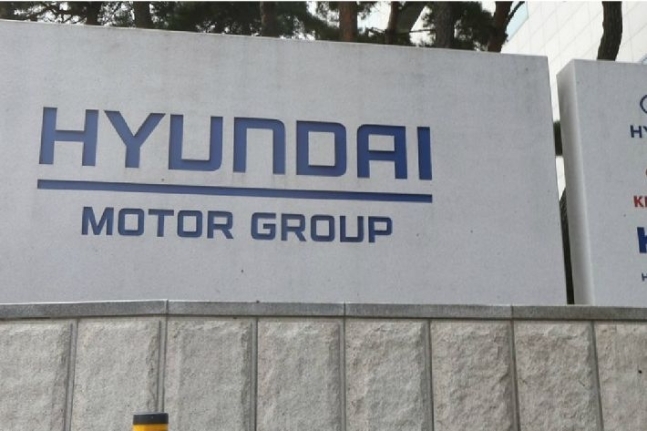[News Focus] Will militant labor union of Hyundai Motor change upon pandemic?
By Shin Ji-hyePublished : April 26, 2020 - 16:01

Change seems to be looming for Hyundai Motor’s labor union -- known for hard-line protests and strikes -- with their new pragmatic leader and as the global pandemic persists.
Hyundai Motor’s wage negotiations, which are normally launched in late April or May at the latest, are expected to be delayed until July this year.
“We are considering a plan to finalize the requests in mid-June and hold a meeting with the management in July. We have to watch the global pandemic trend,” said a labor union official.
The union’s election for representatives is usually completed in late January. But for this year, it was done in March, as plants were shuttered due to disruptions in supply of parts upon the COVID-19 outbreak. All the while, Hyundai Motor’s first-quarter net profit fell 42.1 percent from the same period last year due to the impact of export drop caused by the pandemic.
The automaker’s labor union is known for drawn-out protests and strikes each time during wage negotiations.
It had halted operations of the auto giant’s plants for seven consecutive years from 2012 for a strike, ending the trend last year due to growing trade tensions with Japan and strong public criticism.
Lasting as long as until October, typically collective bargaining beginning in spring often led to partial strikes or prolonged confrontations, thereby causing massive production disruptions. The labor union staged an average of 13 days of strikes a year for the seven years. The strikes are estimated to have cost Hyundai around 10 trillion won ($8.1 billion) in accumulated losses, according to the automaker.
However, changes have been detected, as new union leader Lee Sung-soo, known for his relatively “pragmatic” tendency, was elected in December. He pledged to avoid reckless strikes.
This month, the labor union said in an internal newsletter that “labor, management and government should work together to protect their jobs, using the German-style solution to the crisis as a model.” It added that attention should be paid to a crisis agreement between labor and management in Germany that guarantees employment instead of freezing wages.
“We need to think about various measures to stabilize employment,” a union official said. “We are not considering a freeze on wages right now, but we have to wait and see the progress of the COVID-19 situation.”
Hyundai Motor has been hit hard by the global pandemic.
The automaker said its Brazilian plant would extend the shutdown period until May 26 in consideration of state policy and market conditions. Its production line for Porter pickup trucks at its Ulsan plant will also be temporarily closed from Monday to Wednesday as demand in the Middle East and Asia has decreased. It also had shut down its Tucson production line, a sport utility vehicle, due to a drop in exports earlier this month.
In the wake of the spread of the COVID outbreak around the world, global automakers’ first-quarter earnings plunged in the first quarter.
Hyundai Motor’s global sales during the January to March period came to 903,371 units, down 11.6 percent from the same period last year.
Daimler’s first-quarter operating profit fell 68.9 percent from the same period last year while Volkswagen’s operating profit plunged 81 percent. BMW’s first-quarter sales fell 20.6 percent and that demand is expected to shrink further down the road.
The coronavirus upheavals are expected to continue to weigh on the global auto industry.
Hyundai Motor predicts revenue declines will be inevitable in the second quarter as the impact of the global economic slump and falling demand from COVID-19 is in full swing. Demand slowdown is expected to intensify due to the prolonged suspension of dealer operations and factories in overseas markets.
Kim Sang-hyun, a financial executive at Hyundai Motor, said, “It will vary from region to region but a quick V-shaped rebound is not expected to be easy.”
“We plan to focus all our capabilities on strengthening liquidity management and maintaining adequate inventory levels to enable rapid recovery in time for global demand recovery.”
By Shin Ji-hye (shinjh@heraldcorp.com)






![[KH Explains] How should Korea adjust its trade defenses against Chinese EVs?](http://res.heraldm.com/phpwas/restmb_idxmake.php?idx=644&simg=/content/image/2024/04/15/20240415050562_0.jpg&u=20240415144419)












![[Today’s K-pop] Stray Kids to return soon: report](http://res.heraldm.com/phpwas/restmb_idxmake.php?idx=642&simg=/content/image/2024/04/16/20240416050713_0.jpg&u=)